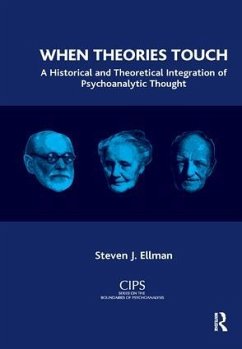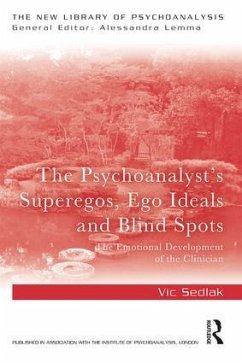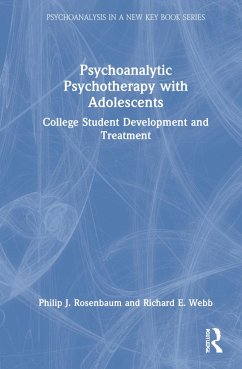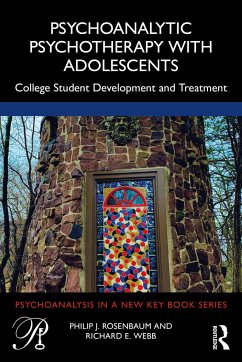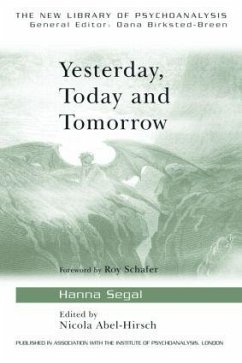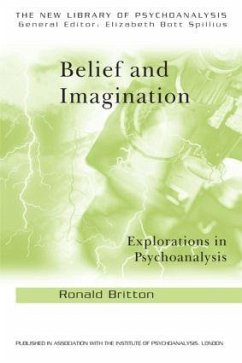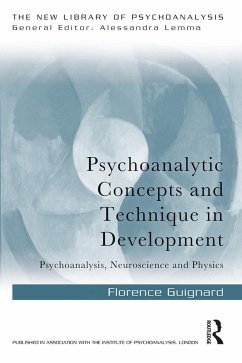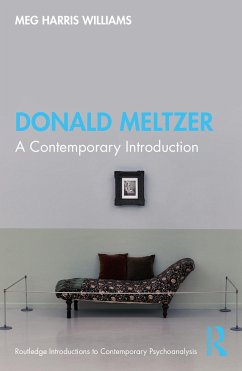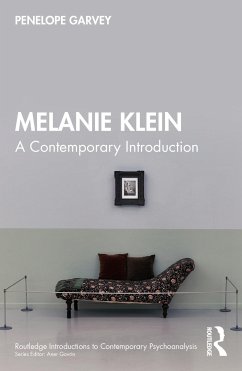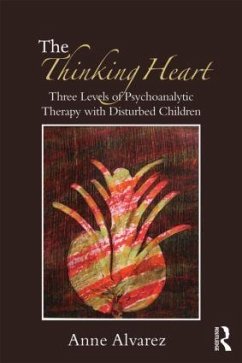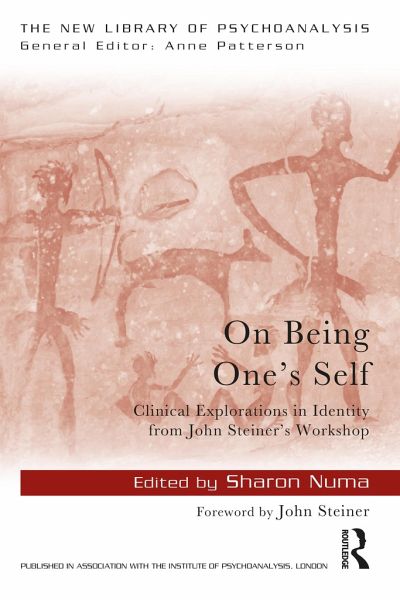
On Being One's Self
Clinical Explorations in Identity from John Steiner's Workshop
Herausgegeben: Numa, Sharon
Versandkostenfrei!
Versandfertig in 6-10 Tagen
36,99 €
inkl. MwSt.
Weitere Ausgaben:

PAYBACK Punkte
18 °P sammeln!
On Being One's Self emerges from discussions in John Steiner's Workshop and investigates the meanings of self and identity, including the many ways in which the development of personal identity can be subverted, interrogating what can facilitate the development of a reasonably stable identity.The variety of problems that can arise in relation to the development of a unique identity is reflected in rich clinical material that vividly illustrates 'identities' felt to be weak, unformed, fluid or brittle, in many cases demonstrating how the sense of self is held together by pathological defences a...
On Being One's Self emerges from discussions in John Steiner's Workshop and investigates the meanings of self and identity, including the many ways in which the development of personal identity can be subverted, interrogating what can facilitate the development of a reasonably stable identity.
The variety of problems that can arise in relation to the development of a unique identity is reflected in rich clinical material that vividly illustrates 'identities' felt to be weak, unformed, fluid or brittle, in many cases demonstrating how the sense of self is held together by pathological defences and organisations. The book examines several long-term adult analytic cases, suggesting that a mature personal identity involves not only 'knowing who one is' but also the capacity for empathic identification with the experience of others as separate human beings.
The question of 'having' an identity, or the fear of losing it, is a central concern of individuals, and this volume, which will be of interest to psychoanalysts and psychotherapists alike, considers these issues by looking at the deepest conflicts around self and identity as they emerge and are relived in the transference relationship.
The variety of problems that can arise in relation to the development of a unique identity is reflected in rich clinical material that vividly illustrates 'identities' felt to be weak, unformed, fluid or brittle, in many cases demonstrating how the sense of self is held together by pathological defences and organisations. The book examines several long-term adult analytic cases, suggesting that a mature personal identity involves not only 'knowing who one is' but also the capacity for empathic identification with the experience of others as separate human beings.
The question of 'having' an identity, or the fear of losing it, is a central concern of individuals, and this volume, which will be of interest to psychoanalysts and psychotherapists alike, considers these issues by looking at the deepest conflicts around self and identity as they emerge and are relived in the transference relationship.





